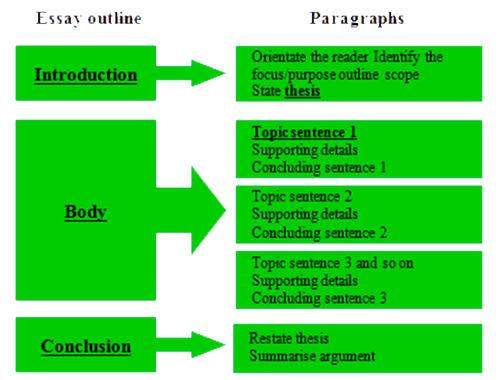Tips for writing a distinctive essay
There are four key ingredients you need to get right in order to write an effective essay. In this final section, we explore this one at a time:
- Interpreting the topic the right way
Your interpretation of the topic is based on your familiarity with the topic as well as on the wording itself. For example, consider this topic: "Corruption- a necessary evil?" versus "Corruption- a necessary evil."
A simple change in the punctuation has changed the implication of the topic itself. This is something you need to be careful about while interpreting topics: make sure you are on the lookout for minor details and you can understand the subtle nuances that these topics contain.
Does the topic allow you to choose your stand? If yes, then you are writing an essay intended to persuade; If no, then you are writing to explain/educate.
For example, consider the topic "UN-Reforms". Let’s see how this topic will look if any takes any one of the above lines of thinking.
- Persuade : Does the UN need reforms? (list arguments FOR or AGAINST)
- Explain : The UN needs urgent reforms ( list the steps proving why)
- Educate : The need for UN reforms (list the areas that need attention)
There are three kinds of ideation that you can up for essay topics:
- Theoretical-the underlying basis
- Conceptual- the tools/concepts
- Empirical-the illustrations/examples
All three refer mainly to the body paragraphs
- Theoretical – the main point of a body paragraph
- Conceptual - the elaboration of the body paragraph
- Empirical -the example to substantiate the body paragraph
Let’s take up two sample topics and built the ideation table for these topics.
Topic 1 : Combating Corruption
|
Theoretical
|
Conceptual
|
Empirical
|
|
Socialism / Liberalism
|
Democracy
|
Anna Hazare
|
|
Capitalism
|
Competition
|
Enron / Kingfisher
|
|
Authoritarianism
|
Revolution
|
Arab Spring
|
Topic 2: Educational Reforms
|
Theoretical
|
Conceptual
|
Empirical
|
|
Levels
|
Primary, Sec., Higher
|
SSA, Mid-day meal, online CAT
|
|
Gender
|
Equality
|
Gender ratio, financial independence
|
|
National
|
Development
|
Demographic Dividend
|
This is the final part of the jigsaw and once you have this in place, you have solved the puzzle for writing effective essays. In order to present your well, you need to keep the following parameters in mind:
- Mention the TITLE
- Indent (for each new paragraph)
- Avoid slang/casual references
- Avoid too many corrections/cuttings
- Avoid spelling mistakes
- Handwriting should be neat and legible.

